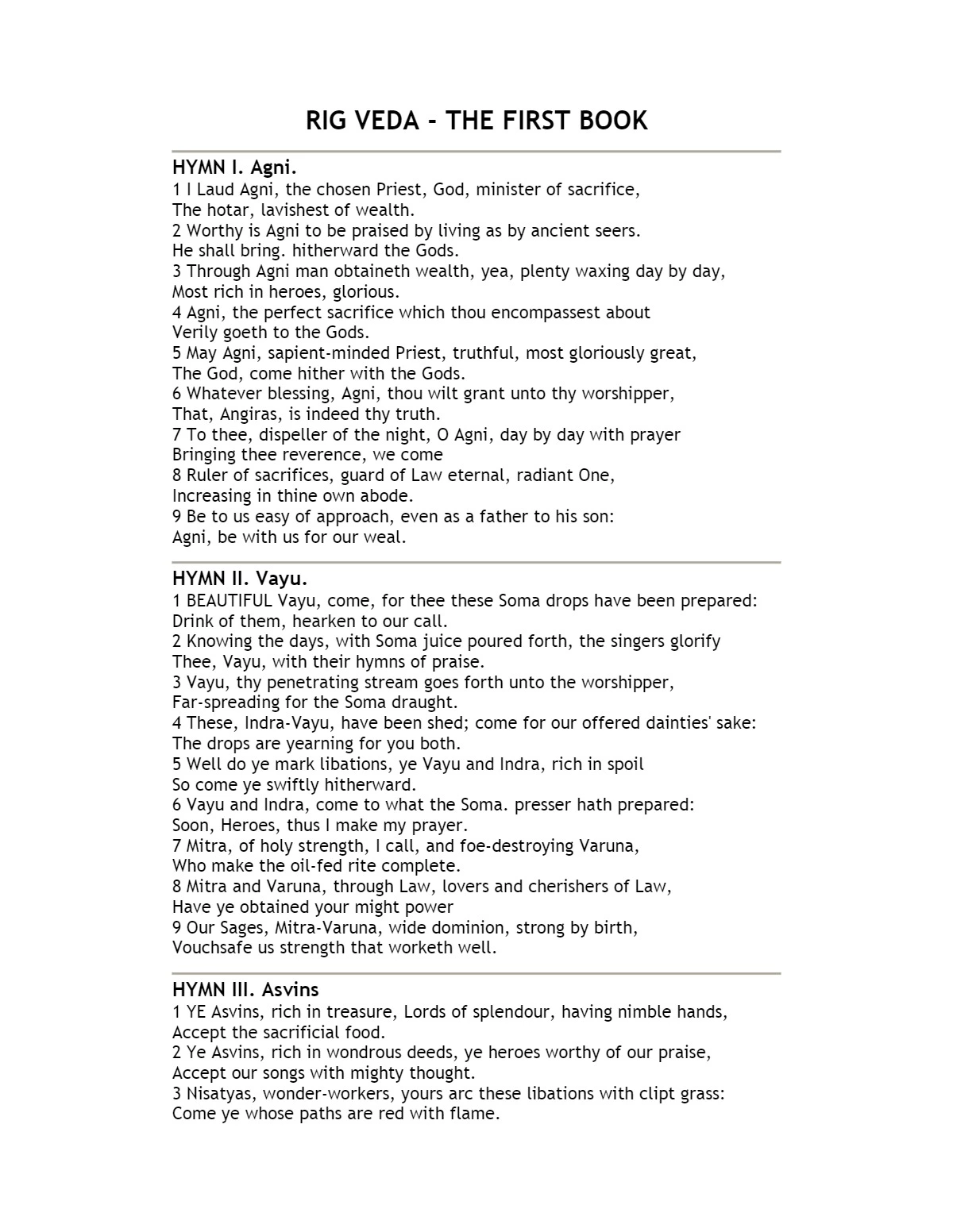The Rigveda is the oldest and most significant of the four Vedas, which are the foundational scriptures of Hinduism. Composed in ancient Sanskrit, the Rigveda is a collection of hymns (Sanskrit: ṛc, meaning “praise”) dedicated to various deities, primarily Agni (the fire god), Indra (the king of the gods), and Soma (the sacred drink).
These hymns were composed by ancient sages, known as Rishis, and were passed down orally for generations before being written down.
Structure and Content of Rigveda
- The Rigveda contains 1,028 hymns, known as suktas, which are divided into ten books called mandalas. Each sukta consists of several verses (called riks) and is composed in praise of specific deities, celebrating their powers, virtues, and the cosmic order they uphold.
- The ten mandalas are not arranged chronologically but are classified based on the families of Rishis who composed them. For example, the second to the seventh mandalas are called the Family Books and are attributed to specific families of sages.
- The Rigveda is rich in its pantheon of deities. The most frequently mentioned gods include:
- Indra: The warrior god and king of the gods, celebrated for his victory over the demon Vritra.
- Agni: The fire god, mediator between humans and gods, and the guardian of sacrifices.
- Soma: The personification of the sacred soma plant, which is pressed to create a drink offering during rituals.
- Varuna: The god of cosmic order and the protector of truth.
- Besides hymns of praise, the Rigveda also contains early reflections on the universe, existence, and the nature of reality. Notably, the Nasadiya Sukta (Creation Hymn) of the tenth mandala speculates on the origin of the universe, questioning how and why the world was created.


